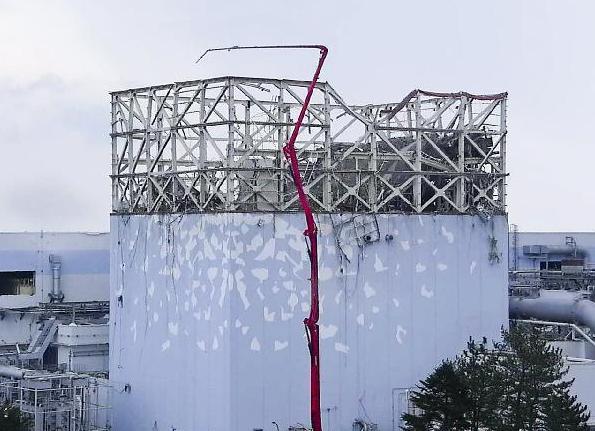China keeps close eye on Japan nuclear leak
 0 Comment(s)
0 Comment(s) Print
Print E-mail
Shanghai Daily, August 16, 2011
E-mail
Shanghai Daily, August 16, 2011
 |
|
Leaks from the Fukushima Dai-ichi nuclear plant, damaged by an earthquake and tsunami on March 11, had definitely influenced the marine space to the east of Japan and the Western Pacific. |
The effects of leaks from a damaged Japanese nuclear plant on China's maritime environment are being closely monitored, officials from the State Oceanic Administration said yesterday.
Leaks from the Fukushima Dai-ichi nuclear plant, damaged by an earthquake and tsunami on March 11, had definitely influenced the marine space to the east of Japan and the Western Pacific. But, so far, it hadn't affected China, it said.
However, officials said there was a possibility the pollutants could enter marine space under China's administration.
A first batch of water samples collected from the sea to the east of Fukushima was found to contain radioactive cesium 137, cesium 134 and strontium 90.
All the three radioactive elements were released from the nuclear plant. Cesium 134 shouldn't be detected in ordinary sea water while the level of cesium 137 was 300 times higher than China's natural base and that of strontium 90 10 times higher, the tests revealed. This indicated that sea waters to the east of Japan and the Western Pacific have been clearly influenced by the disaster.
Polluted water
Officials said polluted water generated by the nuclear plant mainly flowed east, impacting the Western Pacific.
"However, part of the polluted marine water may also be transported to the southwest under some small whirling motions in the sea," said Zhang Jianhua from the National Marine Environmental Monitoring Center.
An official from the SOA's environmental protection department told Xinhua news agency that the nuclear leakage would need long-time tracking and monitoring to enable an accurate forecast of its likely impact and to confirm the pollutants and their movements toward China, he said.
The SOA said that while China's waters had seen no effects from the disaster so far, its influence on the entire marine ecological system could not be ignored.
Meanwhile, marine experts said the public need have no concern over the safety of local sea food, since products sold in Shanghai were usually from the East China Sea.
"Fish and other marine products in the East China Sea have a different migration habit with those in the Western Pacific," said Chen Xinjun from the Shanghai Ocean University. "Fish in China's marine space will not go to the western Pacific and fish in the Western Pacific don't go to China's marine space."





